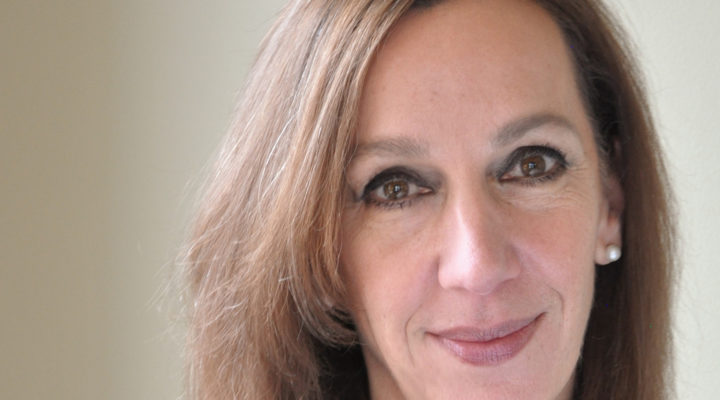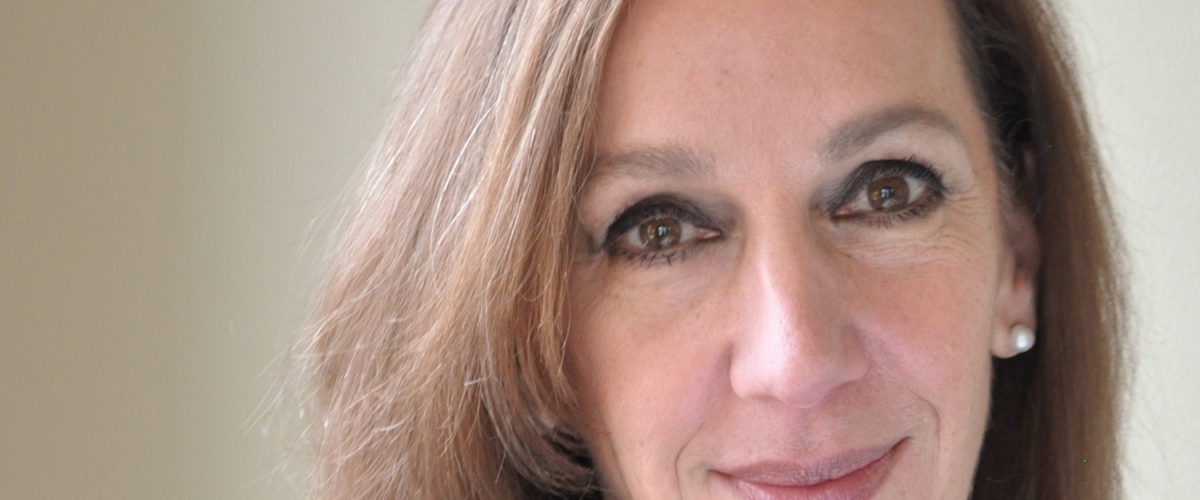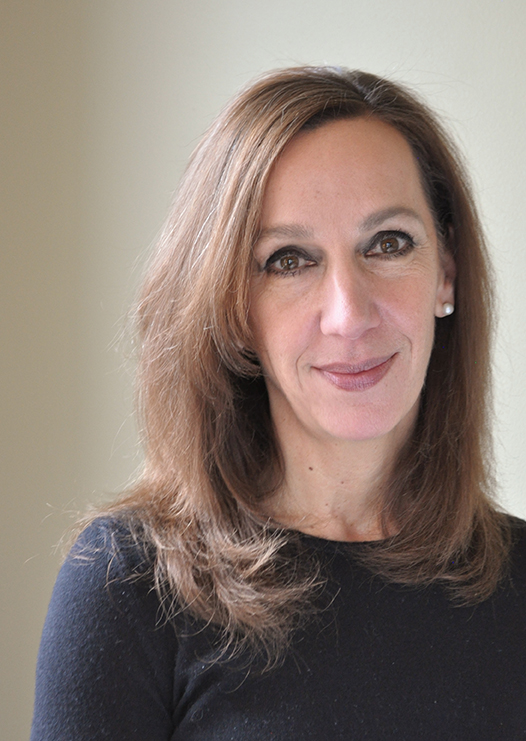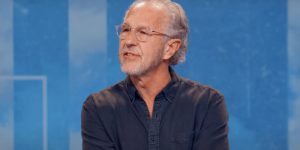It took Jeanne Bishop 20 years just to speak his name.
That, she believed, would attribute a level of humanity to the man who shot her pregnant sister and brother-in-law to death in their own house — a level of humanity she wasn’t prepared to acknowledge.
David Biro was 17 when he committed the murders, breaking into Nancy and Richard Langert’s house and waiting for them with a gun stolen from his attorney a few days earlier. He had no real plan, other than to prove to himself that he could do it. He could break in, take something and slip back out the door.
But then Nancy and Richard came home. And he shot them dead.
His action changed countless lives. It ended with three dead. It put another in prison for life and it barricaded many others behind bars of hatred where they still languish.
But through an anguished journey of faith, discovery and forgiveness, Jeanne Bishop managed to avoid the prison bars behind which hate had consigned others.
Finding her way to the clarity of forgiveness prompted a book — Change of Heart — and thrust her to the front of a national movement to overturn mandatory life sentence without parole for killers who were juveniles when they committed their crime.
Her position puts her at odds with family members who cannot forgive. It discomfits some police officers who risk their lives to apprehend killers they fear will be freed. It puts her at odds with many Christians who believe a young killer is irredeemable.
But it also puts Bishop in sync with an understanding of redemption in the Jesus she’s always known.
“I was born into a family of deeply faithful Christians,” Bishop says during an interview in Skokie, Ill. Her father, a lawyer, raised his family around the underpinnings of faith, family and community.
Thanksgiving was always observed at the family farm and relatives sang the Doxology around a bountiful table.
“We learned early on to give back to community and to take part in public life. We learned that church and faith have to be an integral part of your life as well.”
Bishop graduated from an Episcopal high school in Oklahoma City which started every day with chapel. Teachers told her “to whom much is given, much is required.”
Later, she earned a law degree from Northwestern University, where, as an undergraduate journalism major, she became the youngest member of the city’s human relations commission. She pursued law, believing that to effect change, she had to do more than write about it.
Still, with debts to pay, she became a corporate attorney.
For a long time, she was more angry at God, than she was at her sister’s killer.
David Biro attended the same high school Nancy had attended — the same high school Bishop’s son attends today. Biro was arrested seven months after the crime, a victim of his own boasting to a friend, who turned him in.
When Biro was arrested, Bishop already had agreed to leave her corporate job and begin work as a public defender, in part to honor Nancy. Since Nancy and Richard died so young — just 25 —
Bishop was keenly aware that life is short and every moment is precious.
“I knew I couldn’t live for myself anymore,” Bishop says. “If she didn’t get the gift of long life, I needed to do something with my life and honor God and honor her memory.”
C
ook County, Ill., has the world’s largest unified court system, covering Chicago and most of its suburbs. Five hundred lawyers work for the public defender’s office, prosecuting cases brought to them by police working the streets, and defending accused who cannot afford an attorney.
Bishop handles only felony cases. Her clients’ guilt or innocence is irrelevant to her defense of them, which will be all out.
She will not “stipulate” to anything at trial. When evidence and testimony appear obvious in a case, mutually agreeable but opposing lawyers sometimes “stipulate” to it so neither has to go through the time or expense of actually producing evidence or inconveniencing the witnesses to testify.
“I won’t stipulate to anything,” she said. “Why make it easier for them to build a case against my client?”
“With colleagues I’m cordial. But if we go to trial, it’s war.”
As a public defender for 25 years, Bishop has grown a thick skin. What scares her most is knowing that some of her clients are innocent, and that, “If I lose, an innocent man goes to prison.”
She will never lose for want of trying.
Trailing Bishop for a day starts with settling into a small office shared with two other public defenders. Dreary gray industrial desks and file cabinets crammed together at right angles leave just enough space to slide through if you swing your hips just right.
In the corner with barely enough room to swivel her chair between desk and cabinet, Bishop grabs a stack of manila folders, stuffed like two pounds of taco in a one-pound shell, and sorts out the day ahead.
She makes some calls, juggles her calendar, grabs the appropriate files and is off to court.
She carries 60 to 80 active cases. She typically makes site visits to the crime scene to sniff for information, facts, nuances she could never sense over the phone, or from the testimony of arresting officers.
She asks people walking past the crime scene if they saw or heard anything. A tall, razor-thin woman with large brown eyes, she is not as intimidating as a uniformed officer.
Sometimes police are the only witnesses and often judges credit police testimony above that of a regular citizen. That’s not always good.
While she maintains cooperative relationships with police and prosecuting attorneys, it can get sticky. She is the one defending the people they are bringing up on charges.
They say, “He’s guilty.” She says, “Prove it.”
She will jump on procedural technicalities to quash evidence that might hurt her client. She will grill a police officer on the stand until his or her answers are clear and concise, erasing foggy suppositions that might implicate her client.
Recent national police scandals have helped Bishop and her clients, she said. A badge on the stand no longer confers automatic credibility. Now, when clients claim evidence was planted, or that they were abused while in custody or to force a confession, the claim is at least considered instead of being dismissed outright.
Don’t get her wrong. She is not anti-police.
“I’m very grateful we have police, people willing to do that dangerous job,” she says. “I would find it terrifying and stressful, not to know what is behind that door, or around that wall. I have a lot of respect for many of the officers I work with.
“I know how little money they make. I’ve been to their houses when they are witnesses. He is risking his life for this little bit of money. When there is this demonization of all police officers, I’m wary of that too.”
Working so hard — and successfully — to eliminate mandatory life sentencing without parole for juvenile killers could set the teeth on edge of some law enforcement colleagues.
At the security check point in the massive justice building in Skokie where Bishop works, the female guard tells a colleague that a reporter is here to do “another of Jeanne’s dumb stories.”
Then to the reporter, the guard says, “Nobody here likes what she’s doing.”
W
hat is she doing?
“What Bishop is doing” is aligning her personal convictions with Jesus’ demand that law be tempered by mercy and applying the result to the still oozing sore of her greatest pain.
She advocated for making unconstitutional the mandatory sentence of life without parole for a juvenile murderer. The law was overturned by the Supreme Court in 2012.
In January 2016, the court ruled that those sentenced as teenagers to mandatory life imprisonment for murder must have a chance to argue that they should be released from prison.
This ruling affects 1,200 to 1,500 prisoners — including David Biro. And Bishop wants David Biro to have a chance to be resentenced for killing her sister.
She is motivated by two attributes:
1. Her confidence that no person is unredeemable;
2. Her conscience, which asserts that David Biro should not be forever defined by the single worst thing he ever did.
Judges do not like mandatory sentencing, even though it was intended to relieve them from some of the burden of life and death decisions. Instead, it takes from them the opportunity to consider mitigating circumstances when imposing sentence.
Bishop argues that mercy is a legitimate consideration in dispensing justice, because Jesus’ life example and teaching “is full of astonishing, abundant mercy.”
She points to the parable of the prodigal son who demands his inheritance because “he can’t wait for his father to die,” and then spends it on things of no value. When he runs out of money and friends he formulated an apology and headed home. Before he can deliver his speech, his father sees him, runs to him, embraces, him and welcomes him home.
“That’s the God who loves us,” she says, “the God who wants to welcome us home.”
When a court condemns a person to execution, “We’re saying we can play God, we can decide what value your life has.”
Christians who oppose the death penalty often are perplexed that Christians who call themselves pro life can passionately oppose abortion while adamantly supporting the death penalty.
A priest friend explained to Bishop that people consider the unborn child innocent but the murderer guilty.
But is there any guilt that makes a criminal unredeemable?
A chaplain from notorious Huntsville, Texas, prison shifted from support for the death penalty to opposition to it following an execution when he noticed several garbage bags on the curb. He learned they held all the earthly belongings of the person just executed. “We’re evicting them from earth,” he thought.
Bishop says that God redeemed murderers such as Saul, David and Moses. Refusing redemption is to assert that a human being created in God’s image has no redeemable value.
Mark Osler, a former law professor at Baylor University now at the University of St. Thomas Law School in Minnesota, wrote Jesus on Death Row. His central thesis is that the story of Jesus is, in large part, the story of his arrest, detention, trial and execution.
He compares a condemned man’s last meal to the Last Supper of Christ before his execution. Bishop said the book upended the way she saw her work as a public defender. She has conducted with Osler modern trials of Jesus in which audiences are asked to determine Jesus’ fate.
Osler’s former Baylor colleague, Randall O’Brien, now president of Carson-Newman University, is a Vietnam War veteran and a Yale Divinity School graduate. On forgiveness, he writes: “No Christian is ever in the position of privilege, wronged one or wrongdoer, where he or she is excused from the responsibility of working for reconciliation.”
At Osler’s encouragement, she called O’Brien to explain why she could never reconcile with Nancy’s murderer because he was unapologetic.
“Tell me what trying to reconcile with someone who isn’t sorry would even look like,” she demanded.
“It would look like Jesus on the cross,” O’Brien replied.
Bishop relates this conversation in her book. O’Brien said there is no distinction between the killer and the victim because we are all murderers, responsible for the death of the sinless Son of God. Both are made in the image of God. And Jesus prayed for those who were murdering him at the very moment they were doing it.
Until that conversation, Bishop had never thought of praying for David Biro. She traveled the world talking about murder and forgiveness but had not crossed that psychological and emotional chasm to pray for Nancy’s murderer.
“I wanted his name to die,” she wrote. “I wanted to bury this young man in the sands of time.”
And now, she was being challenged to pray for him, and to consider being the instrument that would bring him into relationship with God.
“I knew that if I called myself a Christian, I had to believe it was possible,” she wrote.
Osler points out that the death penalty is one of the few contentious social issues which Jesus actually addressed. The woman caught in adultery and dragged before Jesus is guilty and the law requires death by stoning. Jesus doesn’t question the Law of Moses, doesn’t debate whether she deserves to die.
Instead, Bishop says, Jesus questions whether we deserve to kill her. “It is absolute hubris to think we can carry out that irrevocable sentence.”
After the Supreme Court struck down the mandatory life sentence law and made resentencing possible, Bishop confided to Osler that she didn’t know if she could support Biro’s potential release because he had never admitted his guilt or expressed remorse.
“How do you know he hasn’t,” Osler asked. “You’ve never talked to him.”
Bishop realized then, that though she had forgiven the offender internally, she had to complete the circle and let Biro know that.
She realized the only thing big enough to equal Nancy being lost was for Biro to be found.
And she had to go first.
She wrote Biro in prison, told him she forgave him but felt the need to tell him so, face to face. She asked to come see him.
He responded with a 15-page letter of remorse, anguish and confession, and agreed to see her.
B
ridging the gigantic chasm between the victim’s family and the perpetrator is rare. When Bishop stepped across that chasm, no other family accompanied. Even today, her mother goes silent when reciting the Lord’s Prayer at, “as we forgive those who trespass against us.”
Bishop believes her father, who died in 2003, would have crossed the divide with her. While cleaning out his file cabinet after his death, Bishop came across a legal pad on which he made notes for the seventh- and eighth-grade confirmation classes he taught at Kenilworth Union Church.
At the top he’d written “Forgiveness” in block letters.
There are two parts to forgiveness, he wrote. The first is “letting go of your justified anger.” The second is harder: “The letting in of this person who did this to you … letting him back into your life.”
“I realized then he would have gone with me to see David Biro in prison,” Bishop says.
Bishop is very sensitive to anything that might pit her against her family, which whom she has a loving relationship. They disagree — like so many Christians — on issues around mercy, forgiveness, capital punishment and redemption.
It isn’t theoretical for them.
“My sister Jennifer lost a sister,” Bishop says. “My mom lost her youngest child, her son-in-law and her first grandchild.”
Bishop serves on the advisory boards of two innocence projects in Chicago, including the Chicago Innocence Center, where college students are working on cases of possible wrongful convictions. They’ve achieved four exonerations in four years, proving once more that the justice system is far from perfect and innocents are often jailed.
Yet many Christians continue to advocate for the death penalty. Why?
Bishop says some think the death penalty is a deterrent, which “is just not the case.” People committing felonies don’t think they will be caught, or they don’t care.
“These are the least rational members of society. They are not doing a cost-benefit analysis of a crime they are considering.
“Some people really believe in that eye for an eye thing,” she adds. “They believe the very preciousness of life is affirmed by the death penalty.”
The late Supreme Court Justice Antonin Scalia, known for being a devout Catholic, advocated for the death penalty, sometimes justifying his position from Romans 13, which asserts the state wields the power of the sword.
To which Bishop would reply, governments are capable of enormous evil.
“Jesus said a lot of things that sound preposterous to the world,” Bishop points out. “Love your enemy, he said. Who is my enemy if not David Biro?”
T
he successful rejection of mandatory life sentence for juvenile killers does not mean that the 1,300 or so prisoners jailed under that sentence will go free. Because of another ruling last January, they are eligible for a sentencing hearing they did not get when they receiving the mandatory punishment.
They will get a second look. The process will be different in different states.
In Illinois, where there will be a judicial resentencing, Biro’s case will likely go back to Courtroom 504 in the main criminal courts building at 26th and California — where Bishop started her career as a public defender. (He is scheduled for a pre-sentencing hearing in August.)
What does she hope happens when these 1,300 prisoners, some of whom have been serving 50 years, return to the courtroom for a sentencing hearing?
“First, I hope that we spend the time and resources commensurate with the value of human life. We’re talking about human life. Either someone will be locked up in prison until they die, or they will not.”
Life without parole is the most serious punishment, Bishop says. “We have to treat it as seriously as a death penalty case.”
In these hearings information will surface that may reveal extenuating circumstances. A judge may hear from teachers, coaches or pastors who knew a suspect at the time of a murder. Bishop believes testimony from guards who see a prisoner every day will be additional important information.
She also wants to see an in-depth evaluation from psychologists, unpack the details of the re-entry plan, and explore attitudes toward crime, victims and victim families.
Bishop hears from many prisoners who anguish over their crimes, committed in a moment that will forever define them, and a moment which most of them would give anything to retract. They want to contact their victim’s families and tell them of their remorse but worry that such contact will cause the families a new round of pain.
And hatred from victims’ families often fuels their own self-hatred.
Bishop says the crime “freezes the moment in time” and punishes the perpetrator and victims’ families for the rest of their lives.
She tries to get prisoners who write to her to think about their victims and their victims’ family. Getting them to consider the humanity of their victim will “shatter an emotional wall they don’t even know exists right now,” she said.
The anguish extends to families of the killers who wish they could reach out to the parents of the victim. But they don’t because they worry the victim’s family will think they’re trying to get leniency for their child.
“Everyone is in their corners and no one is coming to a place where the waters of grace can seep in and wash away some of the hurt,” Bishop says.
That is where restorative justice allows people to come together — not just the victim and defendant, but the whole community.
Bishop carries dozens of open cases. Most of her clients are guilty; some who she thinks are innocent will be convicted. The social environment contributes to the crime cycle and, while citizens are willing to prosecute crime that results from that environment, they exhibit little willingness to improve circumstances that could diminish crime.
Despite that, Bishop says she’s not discouraged. “I see so much goodness.”
“I’m not burned out. I’m fired up. There is so much that needs to be fixed in our criminal justice system. … “How do we have the system we have in the midst of so much bounty?” she asks.
Asked how her life is different today since she forgave Biro, she says, “It’s freer because I’ve unburdened myself from this latent anger that I must have been harboring toward him, trying to bury him in the sands of time, to not want him restored. Forgiveness freed me from this burden.
“When I first started to pray for him I felt this stone was being rolled away from my heart. I started to see the incredible risk of taking seriously the things Jesus said and called us to.
“I could not venture alone into these waters of loving my enemy. But I learned that is where you find your life.”
Bishop often speaks to law students. She tells them life is short, and hangs by a fragile thread. “You have not a moment to lose,” she says. “Don’t waste a moment on fear, or what other people think. You have to do what God put you on earth to do.
“Give your life away. That’s where you’ll find it. This is the whole thing about what Jesus said. I’ve found my life.”
— This article was also published in the September/October 2016 issue of Herald, BNG’s magazine sent five times a year to donors to the Annual Fund. Bulk copies are also mailed to BNG’s Church Champion congregations.










































































